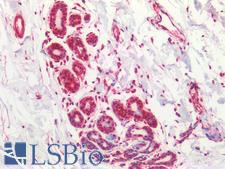Login
Registration enables users to use special features of this website, such as past
order histories, retained contact details for faster checkout, review submissions, and special promotions.
order histories, retained contact details for faster checkout, review submissions, and special promotions.
Forgot password?
Registration enables users to use special features of this website, such as past
order histories, retained contact details for faster checkout, review submissions, and special promotions.
order histories, retained contact details for faster checkout, review submissions, and special promotions.
Quick Order
Products
Antibodies
ELISA and Assay Kits
Research Areas
Infectious Disease
Resources
Purchasing
Reference Material
Contact Us
Location
Corporate Headquarters
Vector Laboratories, Inc.
6737 Mowry Ave
Newark, CA 94560
United States
Telephone Numbers
Customer Service: (800) 227-6666 / (650) 697-3600
Contact Us
Additional Contact Details
Login
Registration enables users to use special features of this website, such as past
order histories, retained contact details for faster checkout, review submissions, and special promotions.
order histories, retained contact details for faster checkout, review submissions, and special promotions.
Forgot password?
Registration enables users to use special features of this website, such as past
order histories, retained contact details for faster checkout, review submissions, and special promotions.
order histories, retained contact details for faster checkout, review submissions, and special promotions.
Quick Order
PathPlusTM MRE11A / MRE11 Antibodies
MRE11A is a component of the MRN complex, which plays a central role in double-strand break (DSB) repair, DNA recombination, maintenance of telomere integrity and meiosis. MRE11A provides the single-strand endonuclease activity and double-strand-specific 3'-5' exonuclease activity for this complex. MRE11A functions in microhomology-mediated end joining repair (MMEJ) of double strand breaks, which is an error-prone process. MRE11A is overexpressed in breast cancers, where it is thought to promote proliferation via STAT3, invasion and migration, and where increased repair functions may contribute to tumor cell radioresistance (and where it may alternatively contribute to the mutation burden). Furthermore, inherited polymorphisms in MRE11A are associated with risk for breast and ovarian cancer. Additionally, a study by Sedghi demonstrated a connection between MRE11A and an ataxia-telengiectasia-like disorder; a family of individuals that lack MRE11A expression showed a predisposition for developmental delay, intellectual disability, limb ataxia and cerebellar atrophy. In immunohistochemistry of normal tissue, MRE11A has nuclear positivity in all tissues throughout the body.
References: The UniProt Consortium. Nucleic Acids Res. 47: D506-515 (2019); Nucleic Acids Res. 2016 Jan 4;44(D1):D733-45, PMID:26553804; J. Natl. Cancer Inst. 104 (19): 1485–502, PMID: 22914783; Breast Cancer Research volume 16, Article number: R58 (2014); Neurology genetics. December 2018; 4 (6), DOI: 10.1212/NXG.0000000000000295; Breast Care 2017;12:114-116, DOI: 10.1159
1 PathPlusTM Antibody

☰ Filters
Products
Antibodies
(1)
Type
Primary
(1)
Target
MRE11A / MRE11
(1)
Reactivity
Mouse
(1)
Application
IHC-P
(1)
WB
(1)
ELISA
(1)
Host
rabbit
(1)
Product Group
PathPlus Cancer
(1)
Isotype
IgG
(1)
Clonality
polyclonal pc
(1)
Format
Unconjugated
(1)
Publications
Yes
(1)

Cancer
MRE11A / MRE11 Rabbit anti-Mouse Polyclonal Antibody
Mouse
ELISA, IHC-P, WB
Unconjugated
50 µg/$515
Viewing 1-1
of 1
product results











